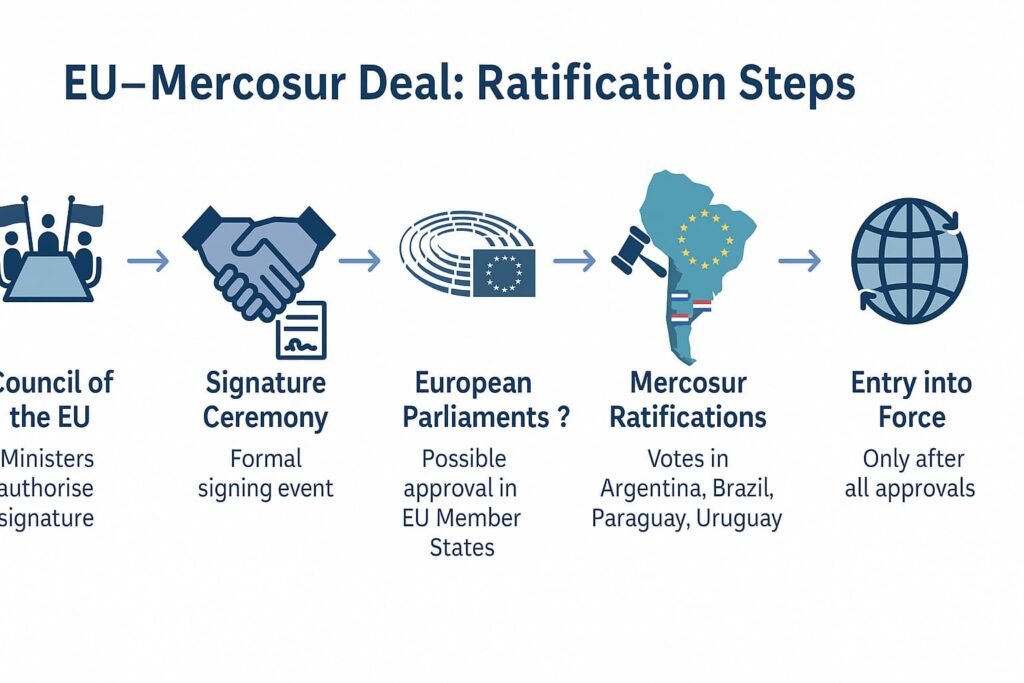The EU-Mercosur Trade Deal: Still a Long Way from Reality
For more than twenty years, the EU and Mercosur countries (Argentina, Brazil, Paraguay and Uruguay) have been talking about a trade deal. We’ve heard the word “historic” many times. Yet, as of September 2025, the facts are simple: no parliament has ratified anything.
Table of contents
What Has Happened
On 3 September 2025, the European Commission finally sent the deal’s texts to EU governments and the European Parliament. The package has two parts:
- The interim Trade Agreement (iTA): cuts tariffs and opens markets.
- The EU–Mercosur Partnership Agreement (EMPA): a broader pact on politics and cooperation.
The split matters. The trade part may only need EU-level approval. The broader deal could require ratification by all 27 Member States — and possibly even regional parliaments.
What Must Happen Next
- Council of the EU – Governments must first authorise signature. France, Austria and Ireland remain sceptical, mainly over farming and environmental issues. Without Council approval, the process stops here.
- Signature Ceremony – If the Council agrees, the EU and Mercosur sign the deal. This is symbolic; it doesn’t make it binding.
- European Parliament Vote – Committees will scrutinise the texts, then MEPs will vote. A simple majority is enough, but if Parliament rejects the deal, it dies.
- National Ratifications (maybe) – The Partnership Agreement may still need votes in all EU Member States. The Canada deal showed how one small parliament, like Wallonia’s, can delay the whole process.
- Mercosur Approvals – Argentina, Brazil, Paraguay and Uruguay each need domestic ratification, usually through their legislatures. One “no” would stall the deal.
Likely Timeline
- Late 2025: Council debates authorisation.
- 2026: Possible Parliament vote.
- 2026 onwards: National votes in EU and Mercosur countries, if required.
Even in the best case, implementation is years away.
Why It Could Fail
- Farmers’ concerns: European producers fear being undercut by cheaper imports.
- Climate worries: Critics say the deal risks more Amazon deforestation.
- Politics: Elections in Europe or South America could flip support.
- Legal disputes: Splitting the deal may face court challenges.
The Bottom Line
Despite optimistic headlines, no one has ratified the EU-Mercosur trade deal. The Commission’s move is just the start of a long approval process, filled with hurdles in Brussels, national capitals, and South American congresses. Until votes are cast — and won — this agreement remains a promise, not a reality.



